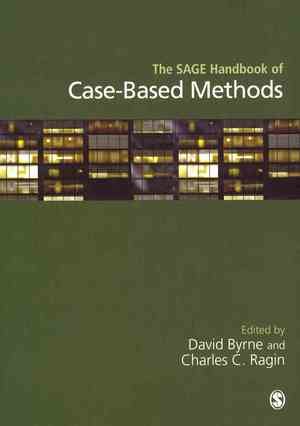Case-based methods have a long history in the social sciences. They are extensively used and raise many practical and theoretical questions. This book provides a comprehensive, critical examination of case-oriented research. It offers concrete proposals about the best research methods and provides an unparalleled guide to the emergence and complexity of the field.
The Handbook:
-Situates the reader in the essential theoretical and practical issues;
-Demonstrates the unity and diversity of case-oriented research through an examination of case-based methods;
-Distinguishes between case-based and case study research;
-Elucidates the philosophical issues around case based methods;
-Examines case-based work in the context of both social theory and theories of research methods.


